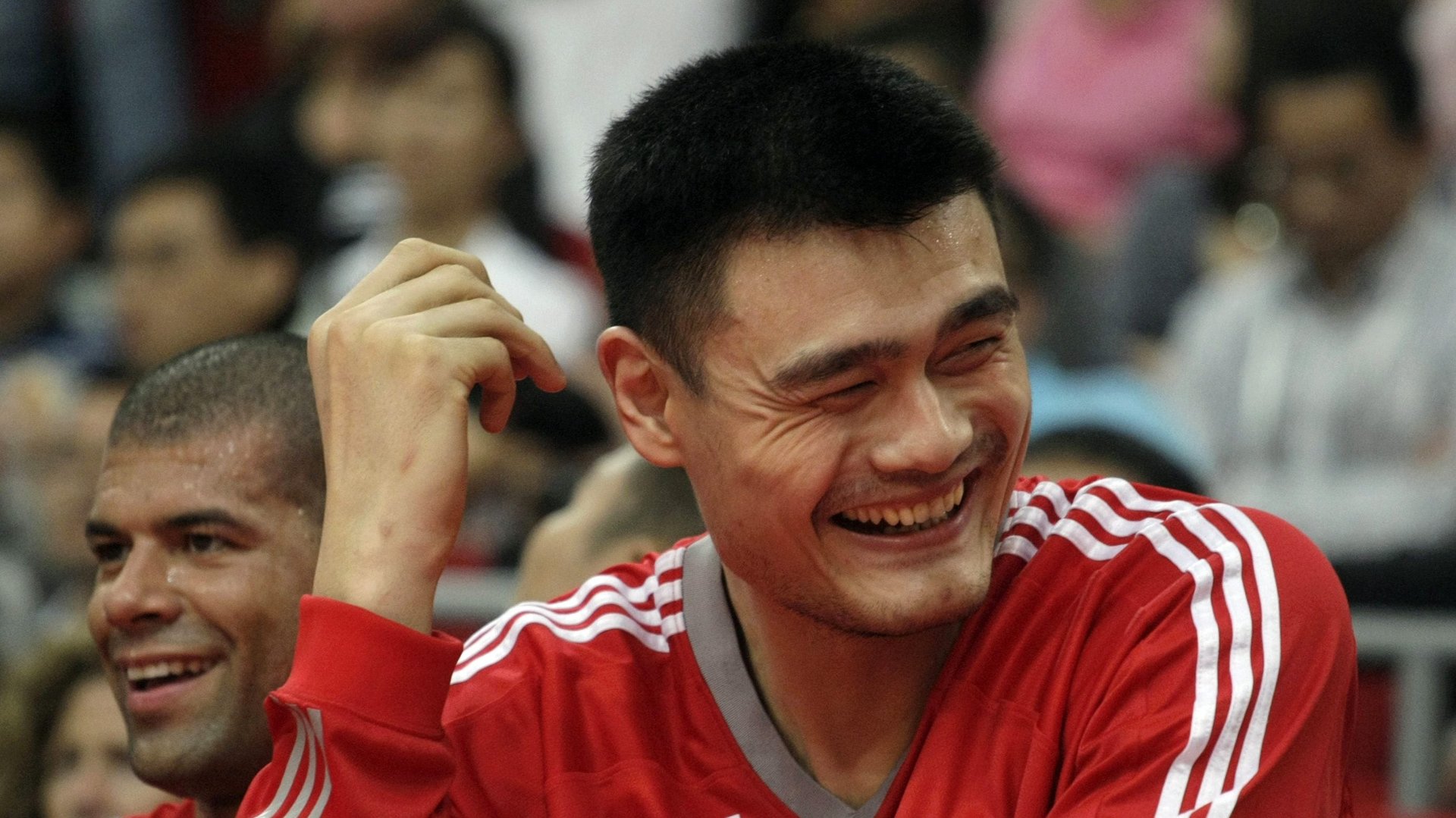Yao Ming has renamed Shanghai’s basketball team after a social media platform
Can you imagine a world-renowned sports team calling itself the Manchester Chevrolets, the Los Angeles Staples, or the New York Snapchatters?


Can you imagine a world-renowned sports team calling itself the Manchester Chevrolets, the Los Angeles Staples, or the New York Snapchatters?
While professional teams in Europe and the US have long sold ads on their jerseys or naming rights to their home stadiums to generate revenue, their Chinese counterparts are taking things a bit further. China’s soccer and basketball teams have begun to name themselves after their sponsors—to the dismay of fans. The latest example is Shanghai’s basketball team, owned by former NBA star Yao Ming.
The team announced (link in Chinese) on Oct. 13 that it has been renamed “Shanghai Bilibili,” under a naming rights deal with Bilibili, a Chinese video-sharing site themed around anime, comic, and game fandom. Founded in 1996, the team was originally called the Shanghai Sharks and is best known for developing Yao before he entered the NBA. In 2009, Yao purchased his hometown team to save it from financial ruin.
After taking over, Yao renamed the team ”Shanghai Maxxis” under several naming rights deals with a US-based tire company (though the team’s shark logo still appears everywhere from the jersey to the arena floor). The new, even weirder name has quickly been ridiculed on China’s internet. Terms of the latest naming deal were not disclosed, but is estimated at (link in Chinese) 15 million yuan (about $2.2 million) per year.
“I thought it was a piece of Onion news,” one internet user wrote on China’s Twitter-esque Weibo (link in Chinese, registration required—and yes, people in China read the satirical website The Onion). Another blogger wondered whether a “Shanghai Mamma Mia soccer team” could be next, given that phrase sounds almost as silly. Some mocked the combination of “shark” and “Bilibili,” which becomes shabi, a Chinese swear word that literally means “stupid c-nt.” Others said they “feel sorry” for sports commentators because they’ll likely have a hard time repeating “Bilibili” during games.
All jokes aside, the naming issue proves that China has no tradition of respecting sports fans. In 2014, for instance, after tech giant Alibaba bought a 50% stake in soccer club Guangzhou Evergrande, Taobao, a shopping site owned by Alibaba, was soon added to the official name. Even though China’s investors are burning cash in the sports industry in recent years, their teams are unlikely to become household names remembered by the next generation, because they’re changing all the time.